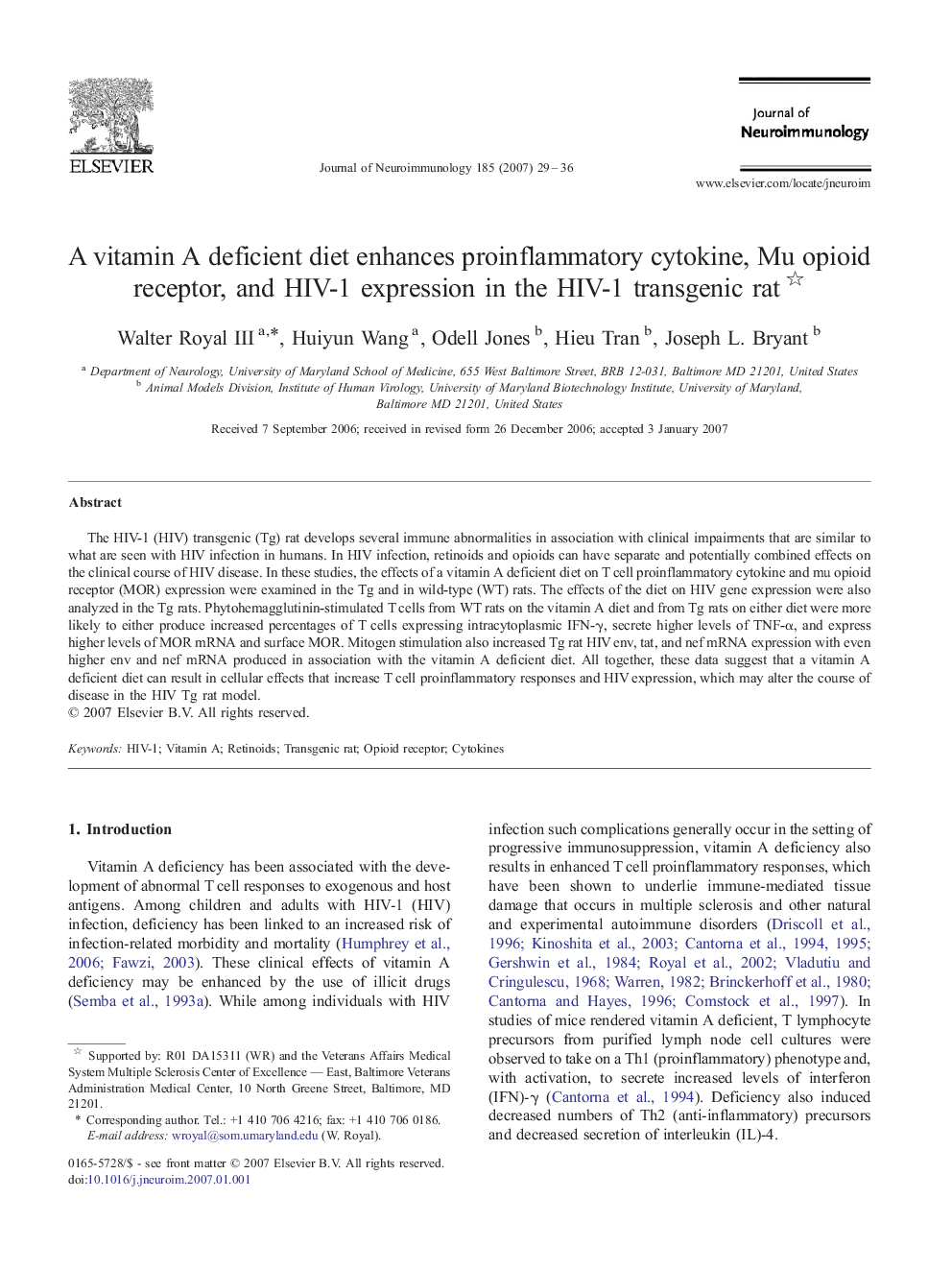| Article ID | Journal | Published Year | Pages | File Type |
|---|---|---|---|---|
| 3065574 | Journal of Neuroimmunology | 2007 | 8 Pages |
The HIV-1 (HIV) transgenic (Tg) rat develops several immune abnormalities in association with clinical impairments that are similar to what are seen with HIV infection in humans. In HIV infection, retinoids and opioids can have separate and potentially combined effects on the clinical course of HIV disease. In these studies, the effects of a vitamin A deficient diet on T cell proinflammatory cytokine and mu opioid receptor (MOR) expression were examined in the Tg and in wild-type (WT) rats. The effects of the diet on HIV gene expression were also analyzed in the Tg rats. Phytohemagglutinin-stimulated T cells from WT rats on the vitamin A diet and from Tg rats on either diet were more likely to either produce increased percentages of T cells expressing intracytoplasmic IFN-γ, secrete higher levels of TNF-α, and express higher levels of MOR mRNA and surface MOR. Mitogen stimulation also increased Tg rat HIV env, tat, and nef mRNA expression with even higher env and nef mRNA produced in association with the vitamin A deficient diet. All together, these data suggest that a vitamin A deficient diet can result in cellular effects that increase T cell proinflammatory responses and HIV expression, which may alter the course of disease in the HIV Tg rat model.
